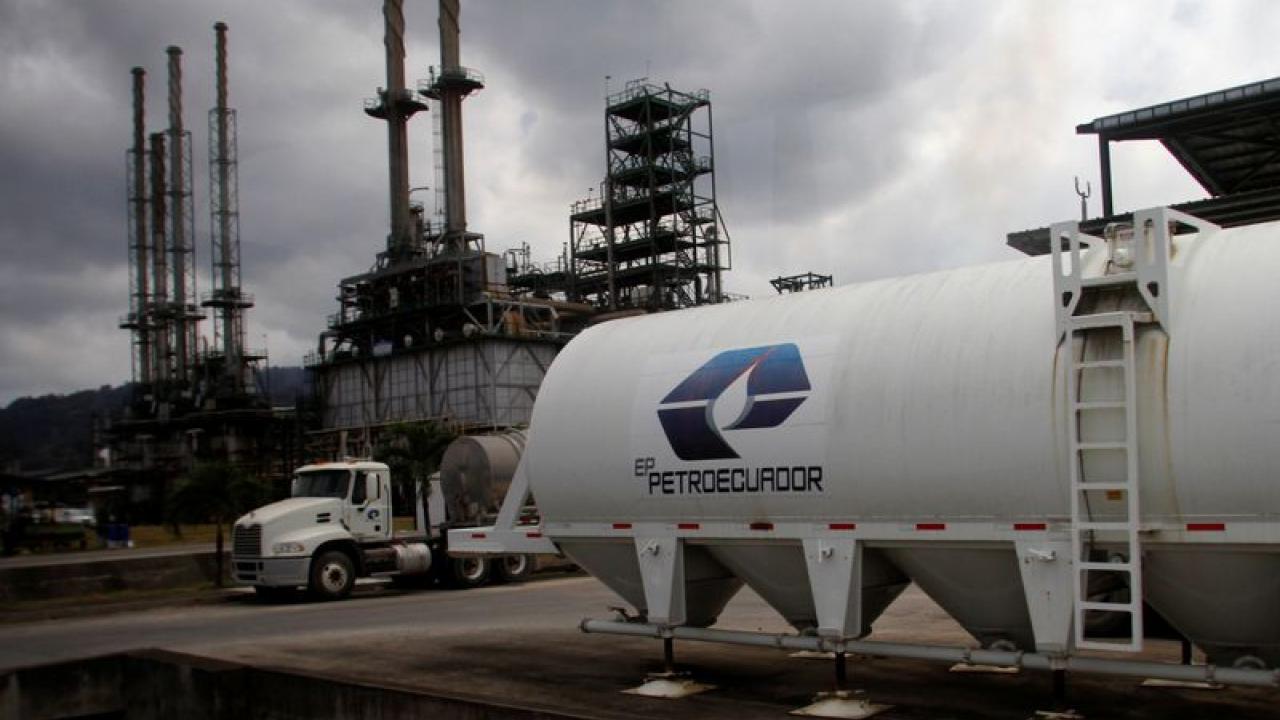
“It may be that one company stops earning a little so that the other earns more, but the balance must be how much Ecuador earns,” said the country's Minister of Energy.
This May 30, bids will be opened for the tender for the purchase and sale of Oriente crude oil, called at the last minute by the International Trade Management of the state oil company Petroecuador, and which seeks to place 3,600,000 barrels in ten shipments throughout the month of June.
It is a contest that entails a series of changes in the rules of the game and through which Petroecuador, at the cost of its own profit, directs the process that would include more expensive transportation (through Flopec) and without a prize.
Thus, the public company Flopec - which together with its partner Amazonas Tanker manages only Panamax and Aframax - would win because its activity is still in force, but Petroecuador would be affected by stronger punishments to its crude oil price and would no longer receive a premium.
The controversial process has its origins on April 24, when through Circular 00209 COM CPC 2024, Tomás Márquez, the former International Trade Manager of Petroecuador, invited a tender for the purchase and sale of Oriente crude oil for a volume of 15,120 ,000 barrels to be delivered in the period from June to November.
Initial contest
The tender indicated that this crude oil had to be lifted in Suezmax vessels (with capacity for 1,080,000 barrels). It would be done in two shipments each month until December. It had also been established that an offered prize must be presented. The first shipment was scheduled to leave between June 20 and 21 and the second shipment on the 29 and 30 of the same month. In addition, offers were expected to be submitted until May 13.
In the middle of the process Tomás Márquez leaves management. Thus, on May 12, 2024, one day before the offers are received, through Circular 232 COM CPC 2024, the new International Trade manager, Sebastián Brito Mena, resolves to postpone the contest. So that offers can be delivered until May 17.
Next, on May 14, it was canceled because it was indicated that there had been a change in the rules of the game by Flopec: “it is pertinent to indicate that this cancellation is unrelated to the wishes of the EP Petroecuador, which were initially scheduled; and, it is due to external factors that fall into Resolution No. GGR-046-2024 issued by EP Flopec on May 11, 2024."
The resolution signed by Roberto Concha Rojas, appointed as manager(s) of Flopec, in those same days, left ineffective another resolution of March 2024 in which Suezmax was allowed to be contracted in the event that Flopec did not have these ships, but always paying 10% of the freight value to Flopec. In the new resolution, it is indicated that only Flopec nominates these vessels, and if Flopec does not agree, they will have to transport in Aframax or Panamax, which are the vessels that this public company has.
New contest
On May 15, however, a new tender was invited, this time for 3,600,000 barrels to be delivered in ten shipments between June 14 and July 1, that is, in less than 14 days. Transportation would be done on Panamax and Aframax ships (smaller than Suezmax ships) and in this call there is no longer a request for a prize.
On the subject, Julio Rivera, an oil consultant, considers that Flopec is a burden for the State and its existence forces Petroecuador to hold tenders with smaller ships, but this ends up harming Petroecuador in the price of crude oil. The big problem, he indicates, is that if the transport company does not use the ships, losses are generated. The business for a maritime transport company is to have its ships in use, always traveling and waiting in ports for the minimum possible time.
He comments that apparently to protect Flopec, these types of decisions are made.
He explains that if Petroecuador sells crude oil through Suezmax, the value of freight drops and consequently the value per barrel improves; But when transporting on Panamax and Aframax ships, the transportation rate rises and the price of crude oil suffers a greater penalty. “The money that comes to Flopec is taken from Petroecuador,” he says.
Julio Rivera: Late sale will take its toll on Petroecuador
But he also maintains that this late exit for the sale of crude oil will take its toll on Petroecuador. Explain that this behavior is called distress in international trade. Then Petroecuador goes out to sell its crude oil “disturbed,” when normally the markets have already closed their purchases for June, on May 25. The result he foresees is that Ecuadorian crude oil will be severely punished: “No one intelligent can go out and sell crude oil with little time, there should be at least 30 days ahead.”
Furthermore, he explains that if this spot sale comes out with a bad price, a bad precedent is created for future sales. Additionally, at this time crude oil volumes must be at full capacity in Balao, he comments.
According to unofficial calculations, the loss from the prize alone for Petroecuador would be US$37 million.
Roberto Luque: With Flopec you could earn much more
The Minister of Energy, Roberto Luque, justifies these changes. He assured that as officials, both Flopec and Petroecuador must see what is best for the State. “This may mean that one company stops earning a little so that the other earns more, but the balance must be how much Ecuador earns on this issue,” he commented.
Luque said that we are seeing how Ecuador's income is maximized, regardless of how these income are distributed among state companies. He assured that “with Flopec I may earn much more.”









